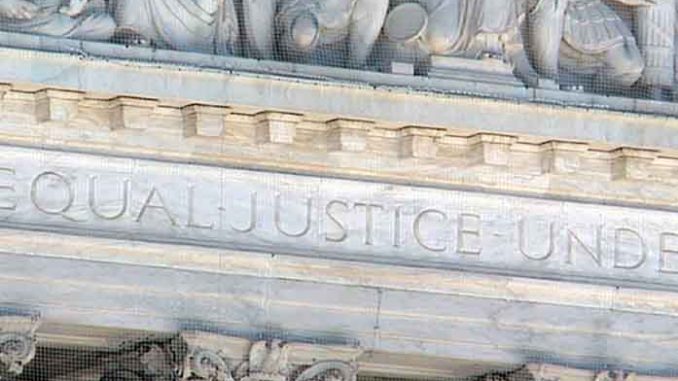
While many people in Maricopa County will be focused Monday morning on President Donald Trump’s campaign “fact-finding” visit and Gov. Doug Ducey’s participation in the certification of Arizona’s election results, the head of the Republican Party of Arizona will be appearing before a judge in hopes of obtaining a court order awarding the state’s 11 electoral votes to Trump instead of Joe Biden.
Last week GOP chairwoman Kelli Ward announced her intention to challenge the certification of Arizona’s 2020 general election results slated to occur this week. State law doesn’t permit the lawsuit to be filed until then, but at 10:30 am Monday a Maricopa County judge will consider Ward’s request to begin discovery immediately because all challenges must be finalized by Dec 8.
Although Ward did not use the word fraud in announcing her planned challenge, she stated there is “a real lack of trust in the administration of this election” as the result of “countless voting irregularities, as well as failures in the crucial processes” of the election process.
If successful, her case could do what four before it didn’t – put Arizona’s 11 electoral votes on hold, at least temporarily. That is why Ward’s challenge must name the 11 Democratic presidential electors as defendants, including Jonathan Nex, President of the Navajo Nation; Maricopa County Supervisor Steve Gallardo; and Tucson Mayor Regina Romero.
However, Ward first has to convince Judge Randall Warner that there is actual evidence, not just supposition, that the process used by Arizona’s 15 counties to verify the signature on a mail-in or dropped off ballot “was legally insufficient” and that “no political party was provided a meaningful way to independently monitor the signature verification process for these ballots.”
One obstacle for Ward on that issue will be convincing Warner to overlook the fact top Republicans did not object to the signature verification process in advance of any of this year’s three statewide elections. And that several Republicans were involved in reviewing the Arizona Elections Procedures Manual last year.
Ward’s concerns with the signature verification process apply statewide, she said, but she also has concerns with the election process used in Maricopa County to address damaged or unreadable ballots.
Such sentiments have been shot down by the five Maricopa County Board of Supervisors, who unanimously voted Nov. 20 to canvass the results of more than 2 million ballots cast throughout the county. The board has a Republican majority and is chaired by Republican Clint Hickman, who has strenuously defended the county’s election operations.
Even Ducey, a Republican, said last week he trusts Arizona’s election system. “There is integrity in our election system,” the governor said. “Joe Biden did win Arizona.”
The lack of post-election confidence referred to by Ward and others has not been helped by some statements from Maricopa County election officials that were later contradicted by sworn testimony, such as the fact Sharpie pens did make it difficult for some tabulation machines to read ballots.
And even the county’s website recently provides incorrect information about the manual hand count conducted after the election to compare to electronic counts.
On Sunday, the Maricopa County website incorrectly noted its election department “conducted a hand count of two-percent of the Election Day ballots…as required by Arizona law.”
But what the county audited, per statute, was the ballots from a randomly selected two-percent of the 175 voting centers. This resulted in a hand count of the 2,917 Election Day ballots from four voting centers.
Had a hand count been done of two percent of the 167,878 ballots cast in-person on Election Day then the audit would have been underperformed by several hundred ballots.
The county website is correct in stating the hand count that was conducted resulted in a 100 percent match, including the required audit of one percent of all early ballots.
